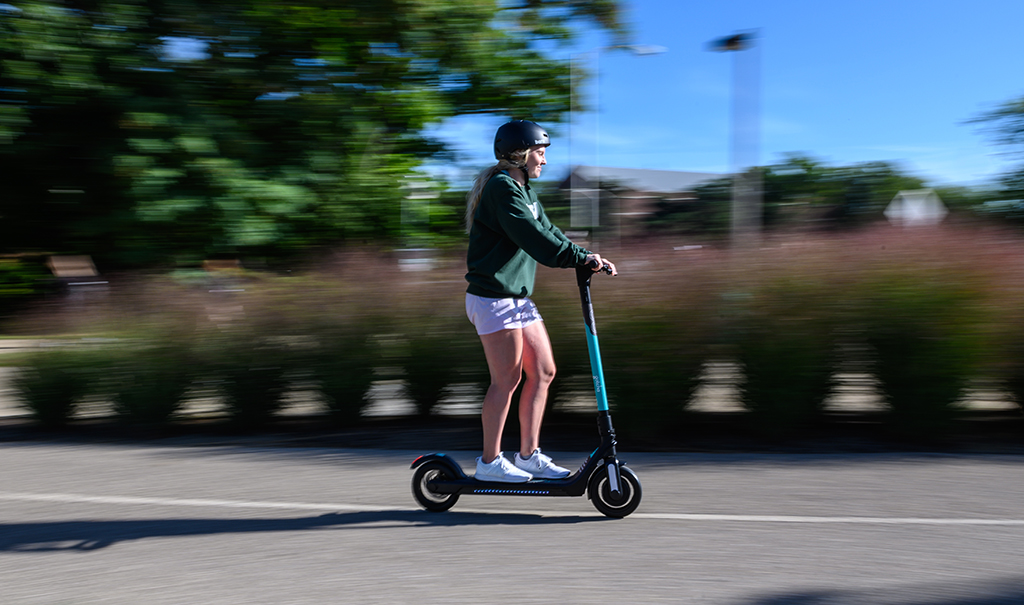
Michigan State University (MSU) recently signed an exclusive contract with mobility company Gotcha for 300 e-scooters for the campus.
The agreement also includes the stipulation that Gotcha will provide MSU mobility researchers with anonymously connected data that will help advance their studies and tests of human-centric mobility. The researchers intend to take this data and use it to ensure better management, develop new solutions to encourage better social behavior, analyze how, when and why e-scooters are used, undertake proactive maintenance in the form of sensors to predict mechanical failure in the various aspects of these scooters, and to explore the larger sociological impact of mobility related transportation.
“E-scooters are a relatively new, yet increasing popular mode of transportation, particularly for students. To accommodate this, we considered two things: rider safety and data sharing,” said Wolfgang Bauer, associate vice president for Administrative Services and University Distinguished Professor. “We are confident in Gotcha’s approach to encouraging rider safety. Plus, the available real-time data has endless opportunities to advance mobility research.”
For Gotcha, it opens for business a campus of thousands, as early as the coming fall semester. These scooters will be required to be set up in designated parking areas, called mobility hubs. The e-scooters will have their own parking permits — all others must have permits to park from the MSU police department.
“We’re excited to bring a micro-transit solution to MSU’s campus for students to commute to class and around town,” Sean Flood, CEO and founder of Gotcha, said. “Gotcha’s e-scooters are a great way to connect students to the city in a safe, affordable, and environmentally friendly way.”